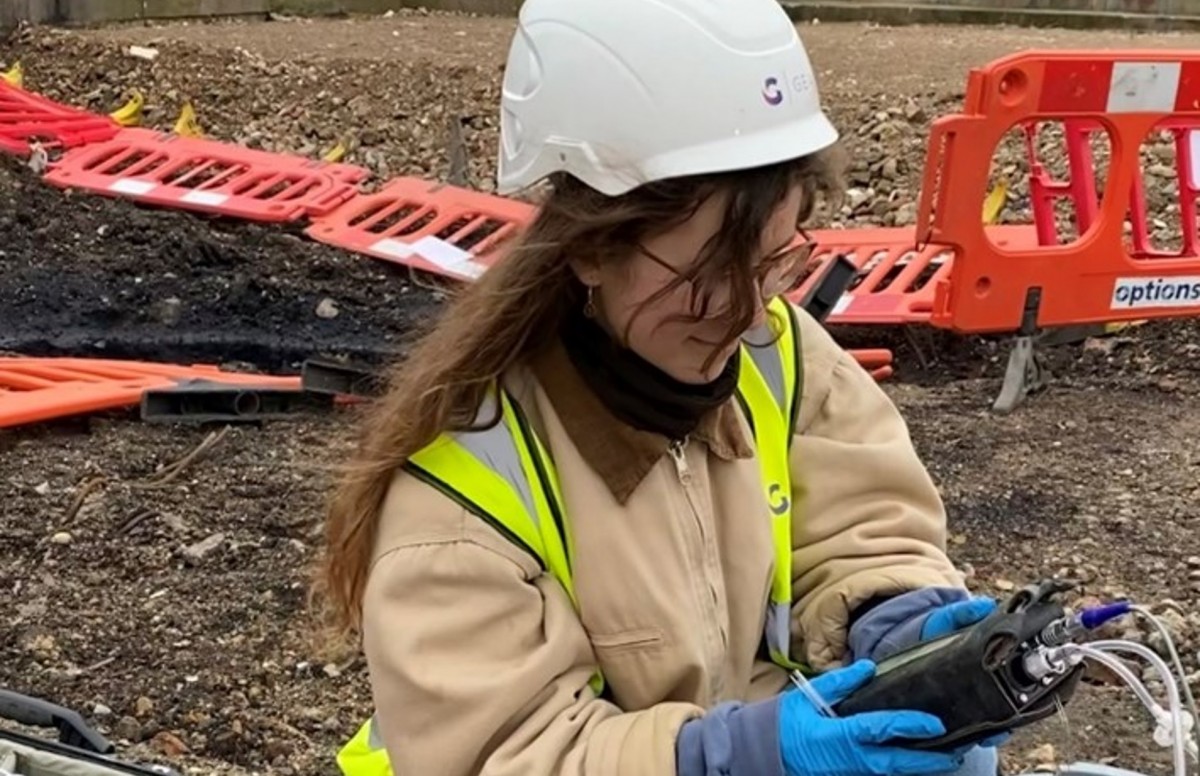Geotheta Fundamentals Explained
Geotheta Fundamentals Explained
Blog Article
The Best Guide To Geotheta
Table of ContentsSome Ideas on Geotheta You Should KnowThe 4-Minute Rule for GeothetaSee This Report about GeothetaHow Geotheta can Save You Time, Stress, and Money.Excitement About Geotheta

They carry out site investigations, collect examples, execute lab examinations, and assess information to evaluate the suitability of the ground for building and construction projects - Geo Tech Engineer. Based upon their findings, geotechnical engineers provide referrals for structure layout, incline security, keeping structures, and reduction of geotechnical dangers. They team up with various other specialists, such as architects, structural engineers, and construction groups, to make sure that geotechnical factors to consider are integrated right into the overall job layout and implementation
By examining the behavior and buildings of dirt and rock, they can determine possible geotechnical risks such as landslides, soil negotiation, or slope instability. Their know-how assists avoid failings or crashes that might threaten lives and home. Below are some in-depth responsibilities and duties of a geotechnical engineer: Site Examination: Geotechnical engineers conduct site examinations to gather data on subsurface conditions.
They interpret the information to understand the homes and behavior of the soil and rock, including their strength, permeability, compaction qualities, and groundwater conditions. Geotechnical Analysis and Design: Geotechnical engineers analyze the information accumulated throughout site examinations to assess the stability and suitability of the site for building projects. They do geotechnical calculations and modeling to examine factors such as birthing capacity, settlement, incline stability, lateral planet stress, and groundwater flow.
Indicators on Geotheta You Need To Know
Foundation Style: Geotechnical engineers play a vital duty in developing foundations that can safely sustain the intended framework. They analyze the dirt conditions and lots requirements to identify the proper foundation kind, such as shallow foundations (e.g., grounds), deep foundations (e.g (https://www.evernote.com/shard/s342/sh/0ddde0a2-417b-669e-3d11-8f53bf2073ba/dxCfPcosgpFcDl9WAXonEVeNbxWt1i_y0aMcgTcK_KXcXyxfIS3apQYAgA)., heaps), or specialized strategies like soil improvement. They consider variables such as settlement restrictions, bearing capacity, and soil-structure interaction to develop optimal foundation styles
They assess building and construction plans, screen site activities, and perform area assessments to verify that the design recommendations are complied with. If unforeseen geotechnical concerns develop, they evaluate the situation and supply suggestions for removal or changes to the layout. Threat Analysis and Reduction: Geotechnical engineers examine geotechnical hazards and risks connected with the job website, such as landslides, liquefaction, or dirt erosion.

Cooperation and Interaction: Geotechnical engineers work closely with various other experts associated with a job, such as architects, architectural engineers, and building teams. Effective communication and collaboration are necessary to incorporate geotechnical considerations into the overall task style and building and construction process. her latest blog Geotechnical designers supply technical know-how, answer queries, and ensure that geotechnical needs are fulfilled.
Getting The Geotheta To Work
Here are some kinds of geotechnical designers: Structure Engineer: Foundation designers specialize in creating and analyzing foundations for structures. They assess the dirt problems, lots needs, and site attributes to establish the most suitable foundation type and layout, such as superficial foundations, deep foundations, or specialized methods like heap foundations.
They assess the aspects affecting incline security, such as dirt properties, groundwater conditions, and slope geometry, and develop techniques to stop incline failures and alleviate risks. Earthquake Designer: Earthquake designers focus on assessing and making frameworks to endure seismic forces. They evaluate the seismic threat of a site, examine dirt liquefaction capacity, and create seismic layout requirements to make sure the safety and security and strength of frameworks throughout earthquakes.
They do area screening, gather samples, and evaluate the accumulated information to define the dirt homes, geologic formations, and groundwater problems at a site. Geotechnical Instrumentation Engineer: Geotechnical instrumentation engineers concentrate on tracking and measuring the actions of dirt, rock, and structures. They set up and keep instrumentation systems that monitor elements such as soil negotiation, groundwater levels, incline activities, and architectural variations to examine performance and give very early warnings of potential concerns.
The Ultimate Guide To Geotheta
They perform tests such as triaxial examinations, combination examinations, direct shear examinations, and permeability tests to gather data for geotechnical analysis and layout. Geosynthetics Designer: Geosynthetics engineers concentrate on the design and application of geosynthetic materials, such as geotextiles, geogrids, and geomembranes. They use these products to enhance soil security, enhance inclines, offer water drainage options, and control erosion.
They have a tendency to be investigatory individuals, which implies they're intellectual, introspective, and inquisitive. They are curious, methodical, reasonable, logical, and sensible. Some of them are additionally social, meaning they're kind, charitable, participating, patient, caring, helpful, understanding, skillful, and pleasant - Engineer of Record.
In the office setting, geotechnical engineers use specialized software tools to perform calculations, develop styles, and evaluate data. They prepare records, testimonial task specifications, interact with clients and team members, and coordinate task tasks. The office setting provides a helpful setting for research study, evaluation, and cooperation with various other experts associated with the job.
See This Report on Geotheta
They frequently see job sites to carry out website examinations, examine geotechnical conditions, and collect data for evaluation. These sees include taking a trip to various places, occasionally in remote or difficult terrains. Geotechnical designers may carry out dirt sampling, conduct examinations, and display building tasks to ensure that the geotechnical elements of the task are being carried out correctly.
Geotechnical designers likewise operate in specialized geotechnical laboratories. In these facilities, they conduct experiments, execute examinations on dirt and rock samples, and examine the design buildings of the materials. Geotechnical lab designers work thoroughly in these environments, handling screening tools, operating instruments, and taping data. They team up with various other lab personnel to make sure accurate and trusted testing outcomes.
Report this page